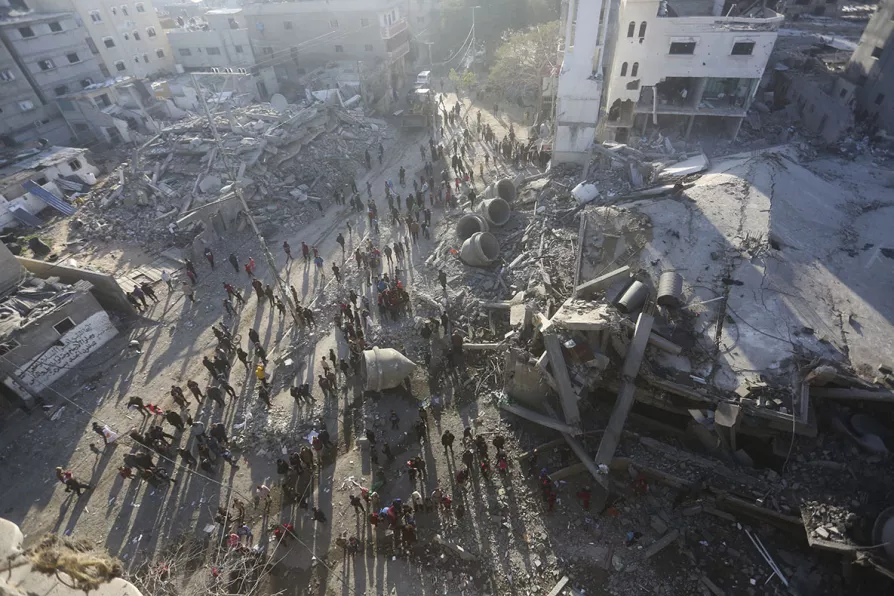Israeli air strikes in Gaza kill 48 Palestinians as fears of worsening humanitarian crisis deepens

 Palestinians look at the destruction after an Israeli strike on residential buildings and a mosque in Rafah, Gaza Strip, February 22, 2024
Palestinians look at the destruction after an Israeli strike on residential buildings and a mosque in Rafah, Gaza Strip, February 22, 2024
ISRAELI air strikes killed at least 48 people in southern and central Gaza today, half of them women and children, health officials said.
European foreign ministers and United Nations agencies called for a ceasefire, with alarm rising over the worsening humanitarian crisis.
Tensions were also mounting in the Israeli-occupied West Bank, where three Palestinian gunmen opened fire on morning traffic at a highway checkpoint, killing one person and wounding five others, Israeli police said.
Similar stories

The overall death toll includes nearly 700













